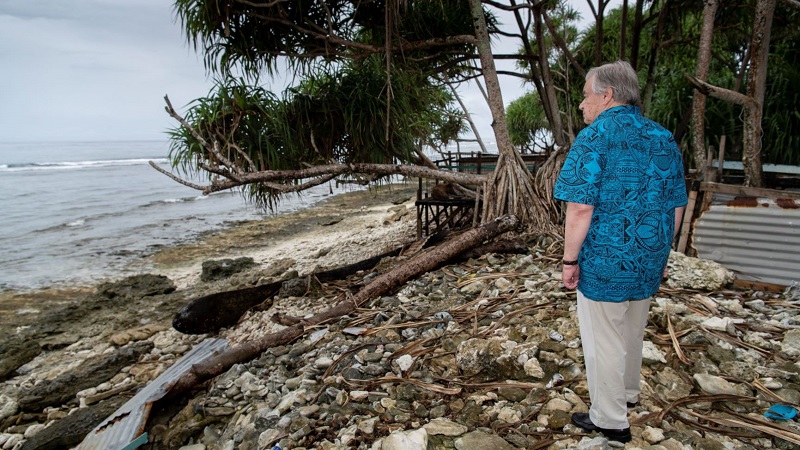UN chief António Guterres took a gamble when he set the bar for next month’s Climate Action Summit in New York.
His asks – no new coal plants from 2020 and carbon neutrality by 2050 – are firmly grounded in the science of holding global warming to 1.5C. But in setting a benchmark that only a handful of (mostly developed) countries are poised to meet, did he doom the summit to failure?
A draft statement from environment ministers of Brazil, South Africa, India and China this week does not bode well. In a casual dismissal of Guterres’ agenda, it ignores the call to raise ambition among the group, putting the onus on rich countries to meet their pre-2020 targets and stump up cash.
It was always going to be tough to get emerging economies on board, amid rising nationalism, US backsliding and EU fragmentation. A lack of sensitivity to equity considerations did not help.
At best, experts expect procedural commitments from the “Basic” countries at Guterres’ summit – and time is running out to prove them wrong.
Bolsonaro defiant
Basic host nation Brazil has turned particularly hostile to multilateralism in general and climate cooperation in particular.
First Germany and then Norway announced they would halt multimillion-dollar payments to the Amazon Fund, in light of president Jair Bolsonaro’s moves to industrialise the rainforest.
Bolsonaro was unrepentant, saying Brazil “doesn’t need” the money.
Climate conversations
How we manage land is critical to climate justice – Andrew Norton, IIED
Pacific row
At a Pacific Islands Forum summit, Australia sought to suppress references to a climate “crisis”, 1.5C, carbon neutrality, coal infrastructure and fossil fuel subsidies.
The Guardian reports talks almost collapsed twice, as emotional Pacific island leaders demanded recognition of the threat rising seas pose to their nations’ survival.
In the final declaration, they landed fairly strong language on the science but Scott Morrison’s government successfully resisted any mention of coal. The New York Times has a deep dive into Adani’s controversial megamine in Queensland.
Quick hits
